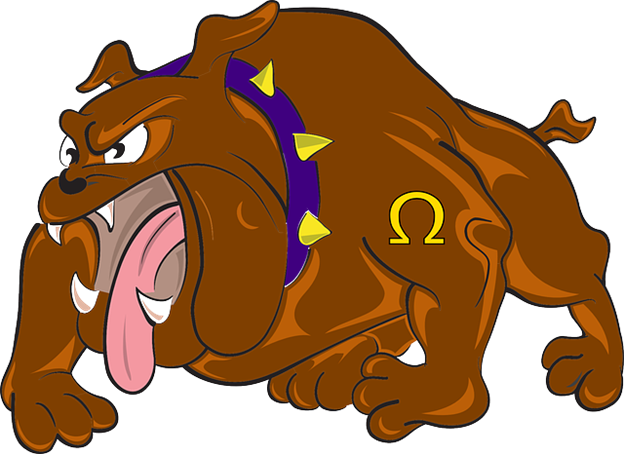It was December of 1926 and the northeastern United States from Chicago to the mid-Atlantic was reeling from ice and snowstorms. Prohibition, a nationwide ban on alcoholic beverages, had been in effect for almost seven years, but it wasn’t illegal to drink alcohol during Prohibition. The 18th Amendment only forbade the “manufacture, sale and transportation of intoxicating liquors,” not their consumption. The law had done little to reduce the consumption of beer, wine and liquors. Organized crime flourished and tax revenues evaporated because the excise tax money from liquor sales was diverted from the federal government to the bootleggers and gangsters. People were tired of the failed social experiment, and they wanted to celebrate their holidays the way they always had. But without a supply of traditionally manufactured liquor with its standards of quality control, the health risks associated with bootleg liquor provided a clear example of Prohibition’s unintended consequences.
The supply issue was solved by a few crafty entrepreneurs who made it their business to satisfy the insatiable demand for alcohol using a network of boats transporting liquor from Cuba to the United States. One of the most notorious smugglers was from Alabama and known by his nickname, Death Ray Davis, although his legal name was Dashiell James. His close friends and family called him Dash. His addiction to risk had gotten the best of him. Three times in a 48-hour period, he’d picked up loads of Scotch whiskey and Bacardi rum from schooners awaiting him off the Cuban coast in the Straits of Florida. He’d evaded capture by a fleet of U.S. Coast Guard patrol boats, returning to his hidden boat house with the hull of his speed boat looking more like Swiss cheese than a custom racing hull powered by twin Liberty V-12 aircraft engines. Dash’s thrill-seeking was not yet satisfied. Dash James began to believe in his own immortality and enhanced his reputation by taunting federal authorities with photos of semi-nude chorus girls dressed in skimpy devil bodysuits with horns and pitchfork serving Dash martinis on the beach in Alabama.
With over 100 federal agents looking for him, he entered a race conceived at a wedding reception in Newport, Rhode Island, by two multimillionaires. One, a wealthy Michigan industrialist, wagered $5 million dollars that a racing boat could defeat the Florida East Coast Railway’s streamliner, the Silver Meteor, in a “private” race from Miami to New York City.
The twin V-12 Liberty aircraft engines were tuned up and the hull of the race boat, Miss Behave, was reinforced with woven fabric, layered with adhesive resin, a predecessor of epoxy and fiberglass. He borrowed an additional $50,000 to bet on himself and then drove his repaired racer from Miami to New York City as if all the demons of hell were in pursuit of him. He covered the course measuring 1,250-miles in 22 hours, averaging 56.82 MPH and won the race by 12 minutes.
He partied with the wealthy in New York and took a train, Seaboard Air Line’s Orange Blossom Special, back to Alabama. The train’s club car was awash in smuggled whiskey and young women intent on enjoying themselves. He was poured out of the club car in Mobile, Alabama, rushed to a hotel for a shower and a few hours of sleep before showing up at a craps table at 3:00 a.m. at an illegal casino. He’d just won $75,000 off one roll of the dice. A thought crossed his mind – pay off his debt! But instead, he switched to the Baccarat table. There, he lost the $500,000 he’d won in the race and the $50,000 he’d borrowed. His luck ran out. His body was found wrapped in an old rug in a garbage dump near the hotel with a wad of one-dollar bills stuffed into his mouth. A popular tabloid made him a poster child for immorality, using his “life’s story” to argue against the evils of drink and gambling while describing how he left his family destitute without any means of support.
However, before he entered the boat race world, Dash James applied to the U.S. Patent Office for a hydraulic self-stabilizing system for boats up to 80 feet in length. A group of investors in Detroit, Michigan, eventually purchased the rights to the patent for $100,000. This was the nest egg he unknowingly left to the surviving members of his family in Gainestown, Alabama. Dash’s invention was used for the WWII PT boats.
***
Many of the early philosophers saw life as a game of chance whose outcome was influenced by some random, unpredictable events. A game of chance may be referred to as gambling if players wager money or anything of value. A game of skill is one where the outcome is determined mainly by the mental or physical capabilities of the players, rather than chance. One of the constant existential questions confronted by philosophers has been this: Is life a game of chance that contains elements of skill, where chance plays a greater role in determining its outcome, or is life a game of skill that may also contain elements of chance, where skill plays a greater role in determining its outcome? The ancient Greeks defined time as a continuous, irreversible sequence of events measured by moves on a checkerboard of nights and days where second chance, no tomorrow always follows today. However, life can be cruel when there is no next time, no second chance, no calling time out.













